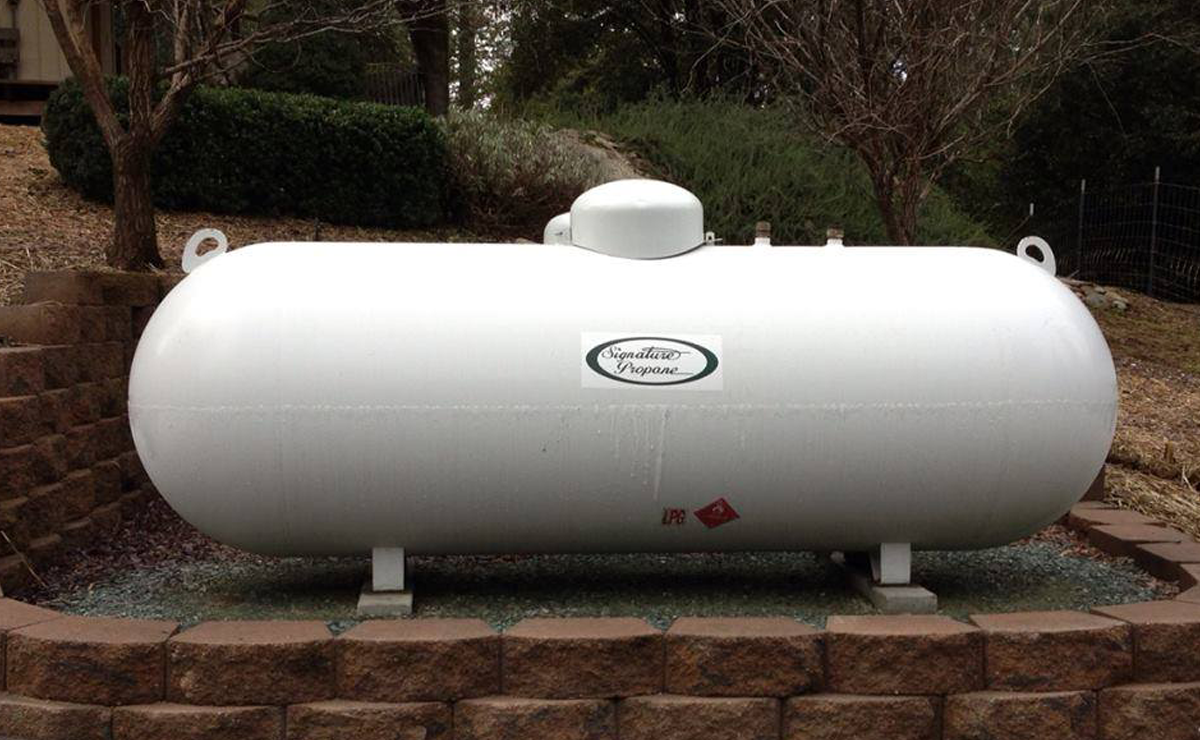Propane tanks are the storage containers for propane in its liquid form. Tanks are available in many different sizes being engineered and designed for propane containment at high pressures. Propane tanks are designed for both stationary and mobile use. The propane tank itself is what allows propane and its usable energy to be portable.
Important Propane Tank Information
The propane industry is educated about tanks, proper tank installation, requirements, laws and procedures governing the repair of tanks and systems they service. It is of the utmost importance that unlicensed individuals do not attempt to make repairs or modifications to their propane tanks. Because the laws and safety practices change within the propane industry, tank installation and maintenance should only be performed by those who are familiar with these codes and regulations regarding propane tanks. This cannot be stressed enough. DO NOT MOVE, REPAIR OR MODIFY ANY PART OF A PROPANE TANK OR ANY PART OF THE PROPANE SYTEM.
Propane Tanks – LP Gas Storage Containers
The information provided within this section is for consumer educational purposes only and is intended to better familiarize propane users with propane tanks and their parts. Propane tanks are widely known as being either portable or stationary. Portable tanks, known as bottles or cylinders are used as a fuel source for gas grills as well as forklifts. Stationary propane tanks are often found behind homes or businesses supplying all propane powered appliances in the structure. Stationary propane tanks are also used to refill cylinders and mobile containers at bottle plants.
Propane tanks, regardless of size store propane liquid until it is used as either a liquid or vapor. All propane tanks are subject to rules based on safety and can only be filled to about 80%. Many people believe that propane tanks and butane tanks are the same but propane pressure is much higher than that of butane. This means propane tanks are subject to higher pressures and the two types of tanks are in fact very different and cannot be filled with either of the two LP Gases. Propane tanks are for storing only propane. This section covers related subjects such as:
- Basic explanations to help consumers to better understand propane tanks
- Various sizes of propane tanks
- Installation of and basic facts about underground propane tanks
- Basic principles of propane tank installation
- Safeguarding and protection of propane tanks
- Portable propane tanks such as cylinders and bottles
Although tanks and propane storage containers are subject to rules and regulations, this section is designed to acquaint consumers with their tanks at all levels with the hope that safety will be their priority by knowing what to look for.






